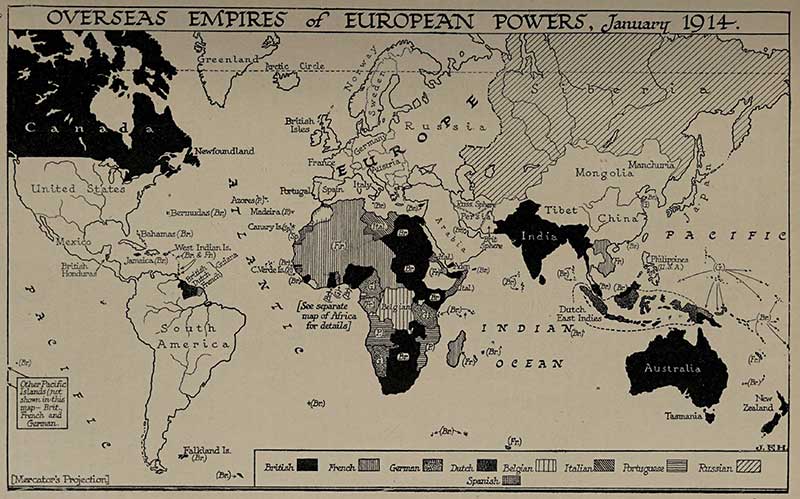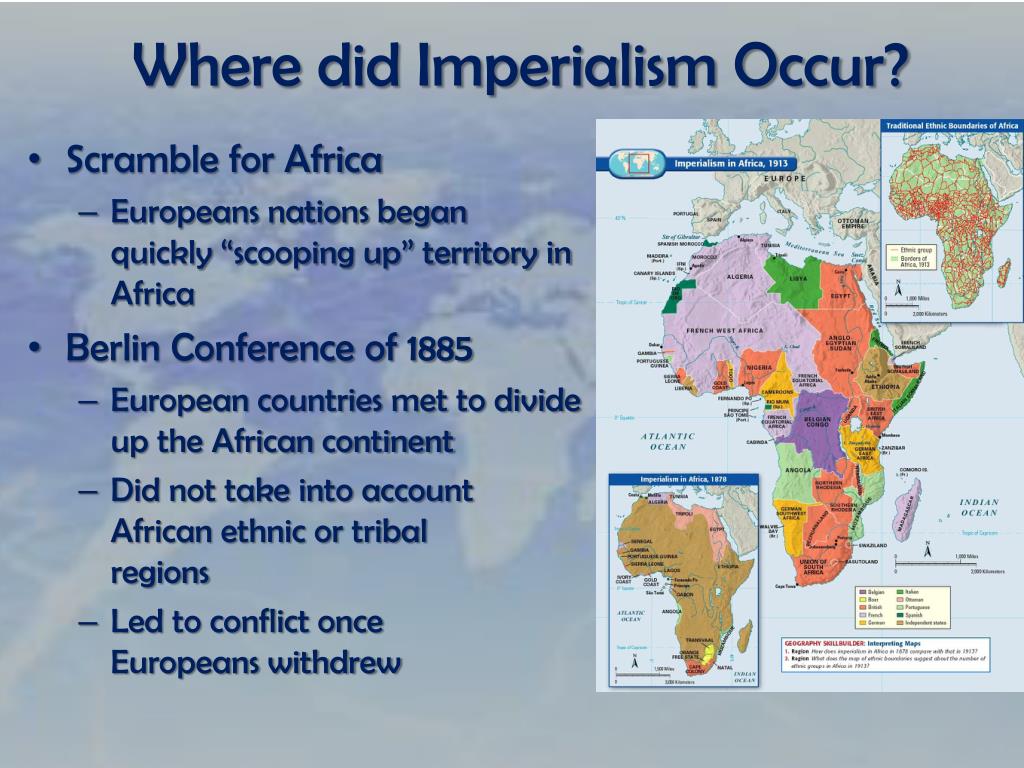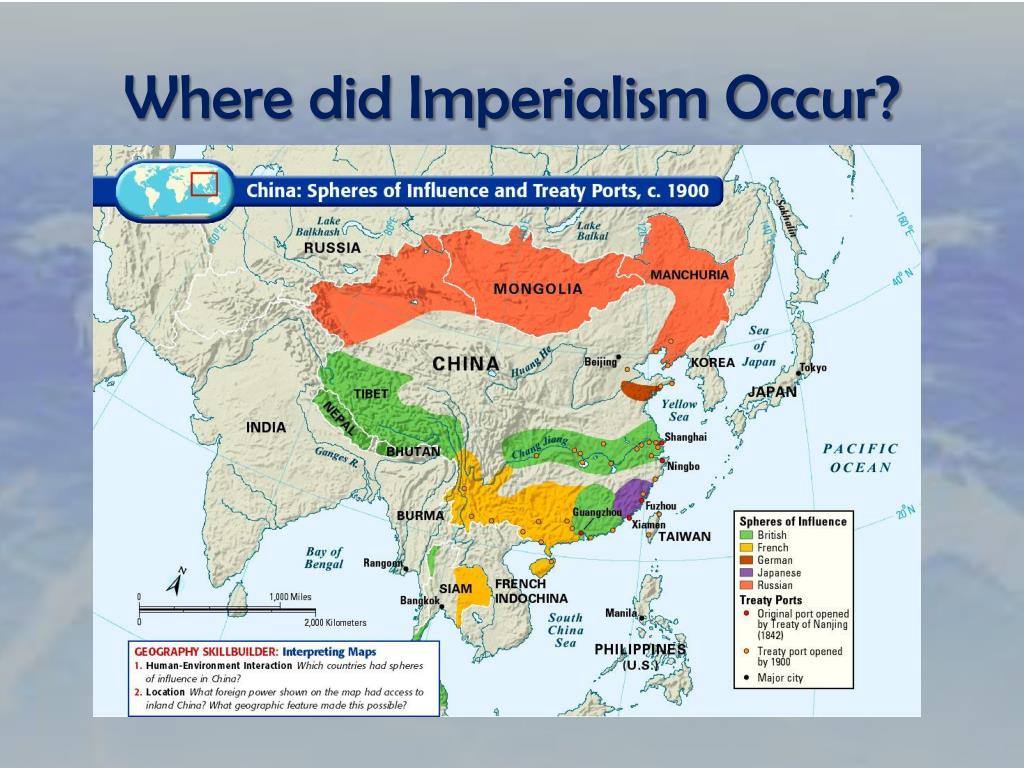Imperialism is a term that refers to the extension of a nation's power and influence through the acquisition of territories by means such as colonization, annexation, or military conquest. Imperialism has occurred throughout history, but it reached its peak during the late 19th and early 20th centuries, when several European powers, such as Britain, France, and Germany, as well as the United States and Japan, established large empires around the world.
The origins of imperialism can be traced back to ancient civilizations, such as the Roman Empire and the Chinese Empire, which expanded their territories through military conquest and cultural assimilation. However, modern imperialism emerged during the Age of Exploration, when European powers began colonizing the Americas, Africa, and Asia. These colonial empires were often justified by the belief in European superiority and the desire to spread Christianity and Western culture to "uncivilized" regions of the world.
During the 19th century, imperialism became more closely tied to economic interests, as European powers sought to gain access to raw materials and markets in their colonies. This period saw the rise of what is known as "gunboat diplomacy," in which a country's military power was used to coerce weaker nations into trading with or accepting the influence of the imperial power.
The late 19th and early 20th centuries also saw the rise of nationalism, which often fueled imperialism by encouraging the belief that a country's greatness and prosperity could be achieved through the expansion of its territory. This period saw the expansion of several European empires, as well as the emergence of the United States and Japan as imperial powers.
Imperialism has had a lasting impact on the world, shaping the political, economic, and cultural landscapes of many countries. While it has brought about some positive developments, such as the spread of technology and education, it has also had negative consequences, including the exploitation of natural resources, the suppression of indigenous cultures, and the spread of disease. Today, imperialism is generally viewed as a controversial and outdated practice, and many countries that were once colonies have gained independence and assert their sovereignty.
When did imperialism begin for the us?

As the major European powers spread their empires throughout the world, they also spread many of their beliefs, customs and religious practices. The New Imperialism was a major factor in causing World War I as rivalries between the major powers led to an arms race and a series of alliances which eventually led to war. What is the New Imperialism? The term imperialism was originally introduced into English in its present sense in the late 1870s by opponents of the allegedly aggressive and ostentatious imperial policies of In Imperialism: A Study 1902 , Imperialism he argued that the financing of overseas empires drained money that was needed at home. For nations that are conquered, the system has generally resulted in an extraction of monetary, mineral, and cultural wealth. The mixture of these attitudes along with other factors led the United States toward imperialism. What might these represent?. In Algeria, the debate was polarized.
Russian Imperialism

The cast of Africa At the Berlin conference almost all of Africa was ordered according to European interests. Visions of Empire: How Five Imperial Regimes Shaped the World. She covers topics such as stock investing, budgeting, loans, and insurance, among others. Individual colonies might serve an economic purpose; collectively no empire had any definable function, economic or otherwise. Historians compare his actions with other famous figures, such as Henry Morton Stanley, and consider him an influential person in the outbreak of the Scramble for Africa in the 19th century. On one hand, increased demand for cash crops led to a rise in agricultural production. One thing that Imperialism influenced was exposure to other new cultures and more religions being spread.
World History

The language, the clothing, the infrastructures all have been affected by imperialism. Recently discovered, it was a source of raw materials in massive volumes. New York, NY: Columbia University Press. The scale of these empires was vast. Rubinstein, "Soviet Imperialism in Afghanistan. European industrialists sought raw materials such as dyes, cotton, vegetable oils, and metal ores from overseas. A last illustration of Russian imperialism strikingly shows the gulf that separates the outlook of the present regime from its own early proclamations.
How did imperialism spread around the world?
:max_bytes(150000):strip_icc()/stanley-meets-livingstone-588890135-5bff1ae046e0fb00511c8c06.jpg)
The Dynamics of Global Dominance: European Overseas Empires, 1425—1980 Yale UP, 2000 , political science approach. For example, one of the most famous missionaries from the time of the Age of Imperialism was David Livingstone. At the time, Europe had experienced a period of prolonged population growth, and many feared that European populations were reaching unsustainable levels. This sense of rivalry was so intense that it eventually led to the outbreak of World War I in 1914. Familial relationships disrupt from language barriers. Thirdly, it led to an intensification of economic rivalry between empire-builders. If so, what are they? The Best Moments In The History Of Football Imperial domination can occur, on the one hand, through colonization.







:max_bytes(150000):strip_icc()/stanley-meets-livingstone-588890135-5bff1ae046e0fb00511c8c06.jpg)